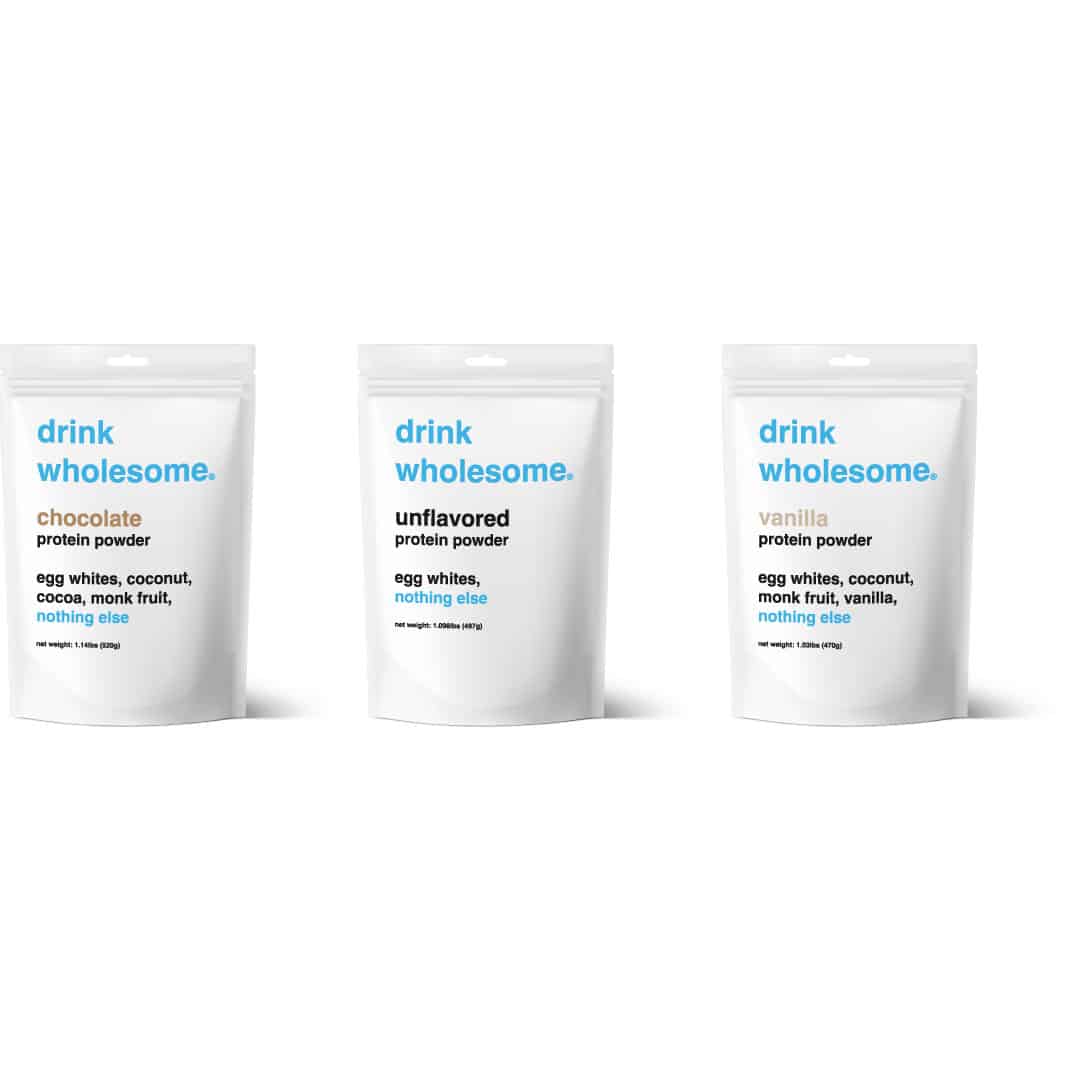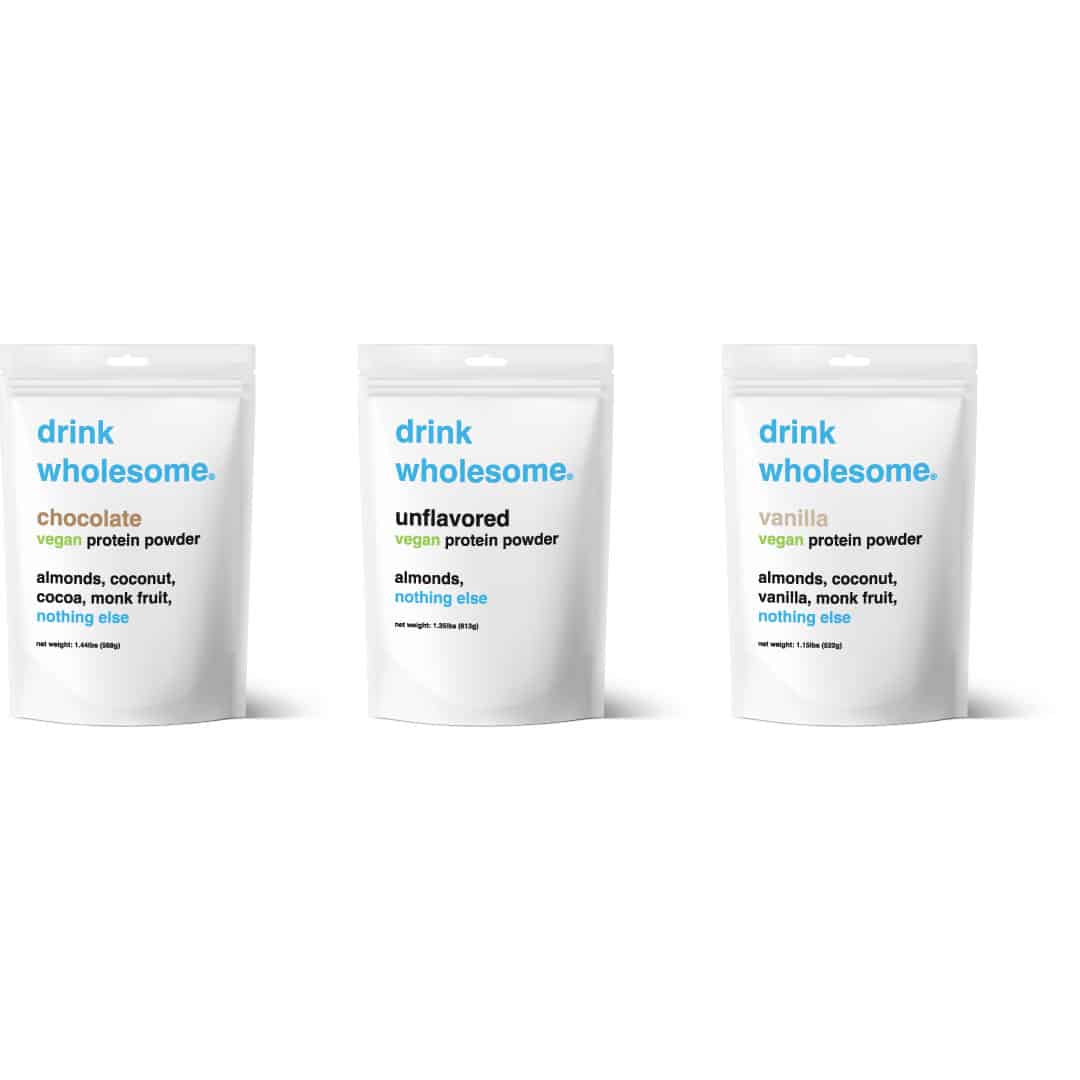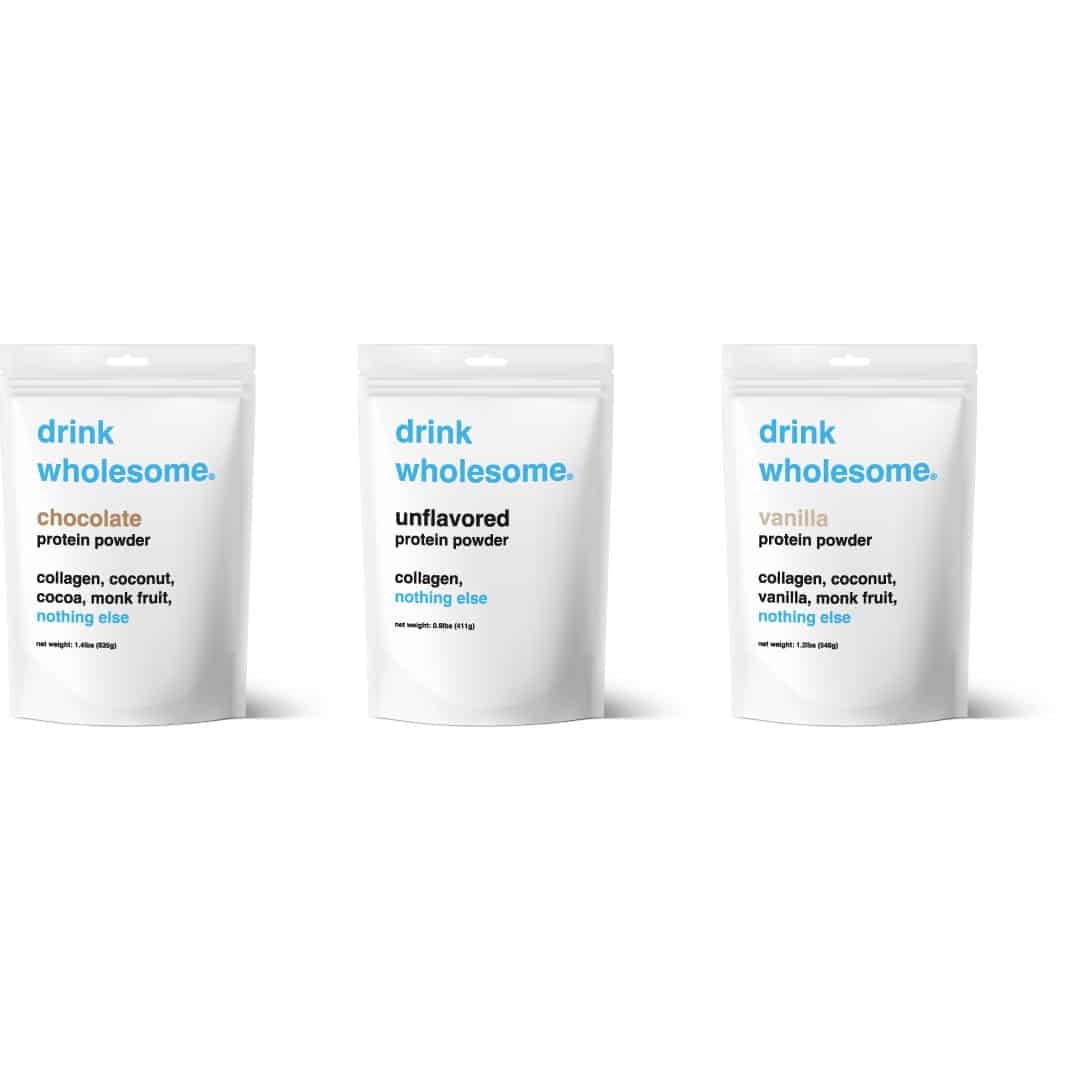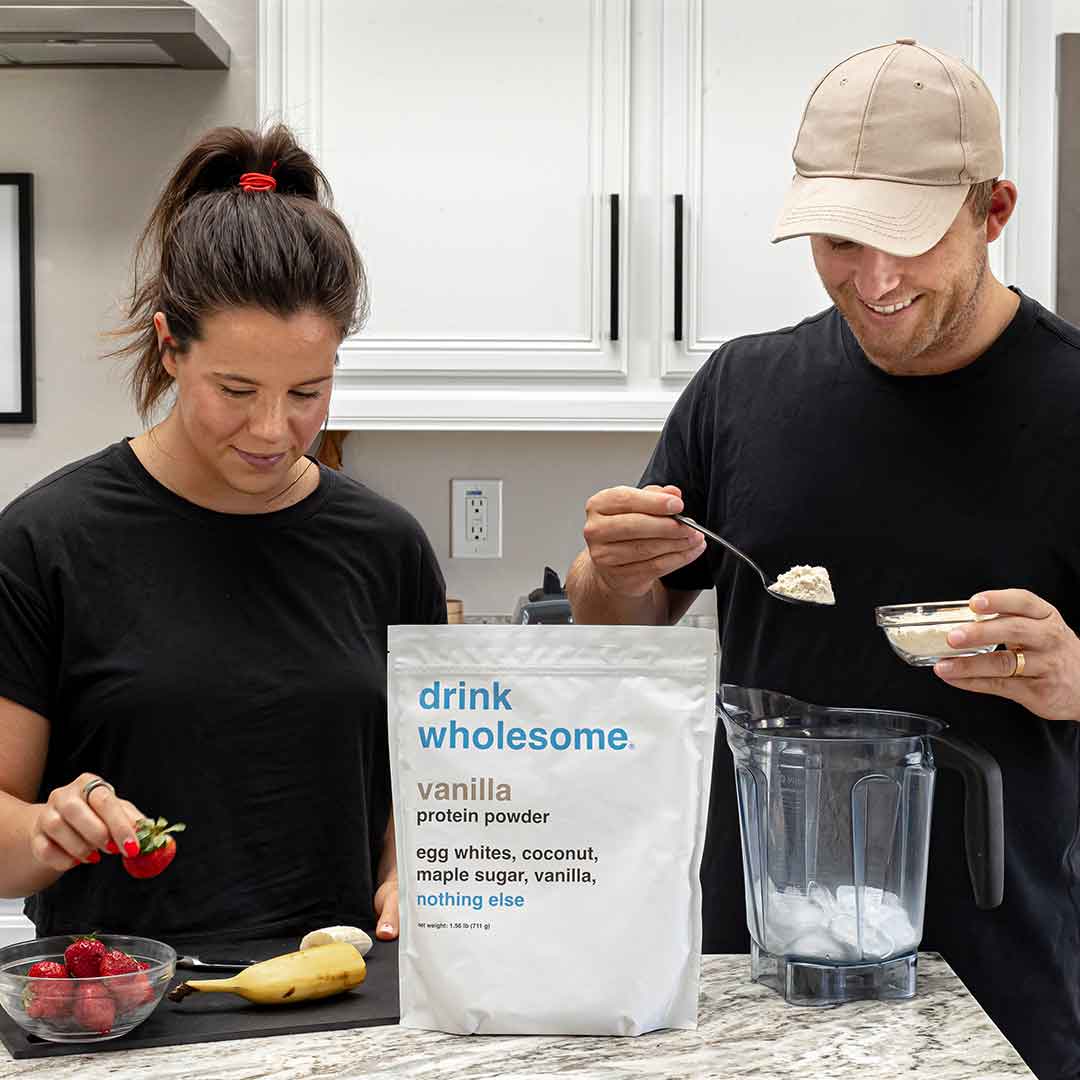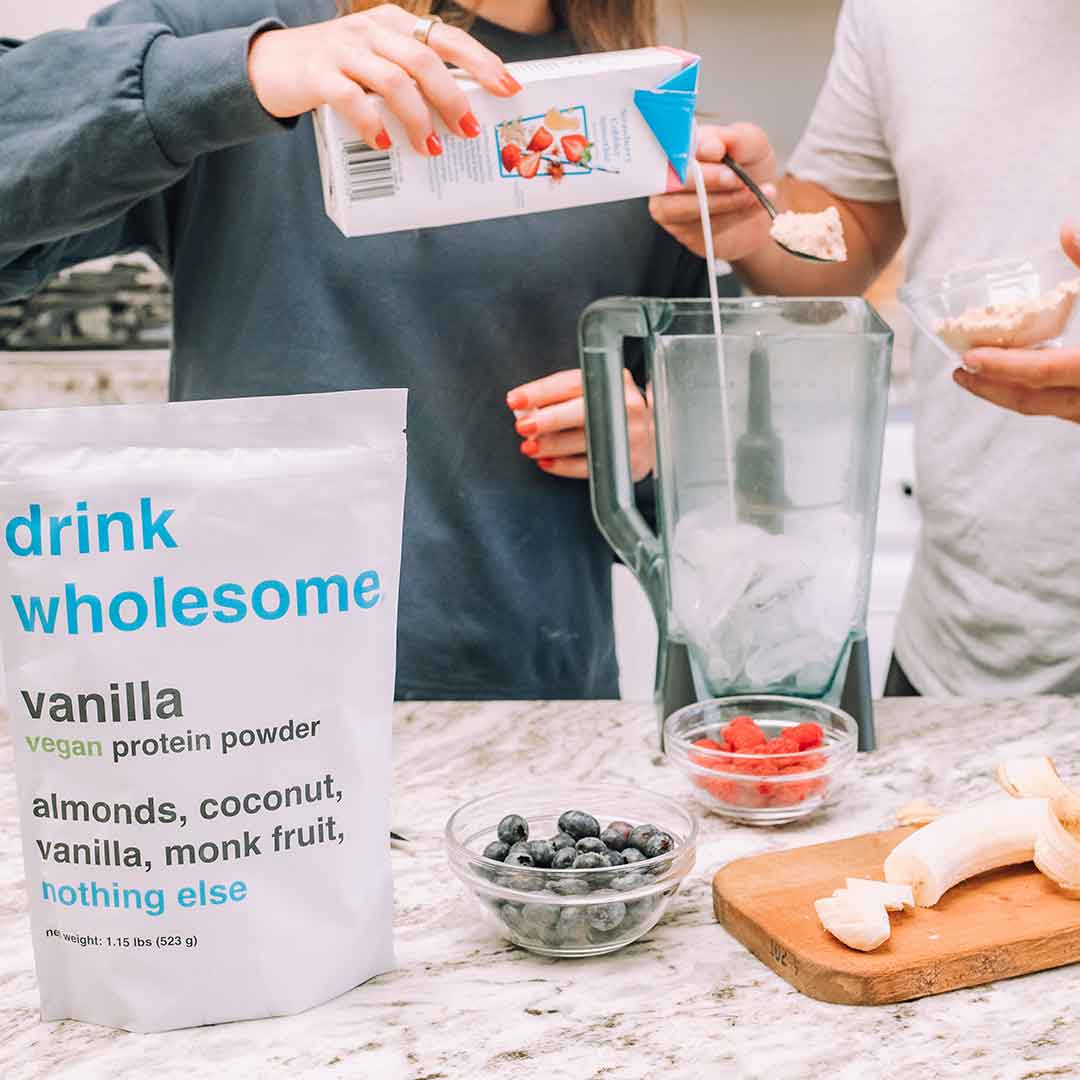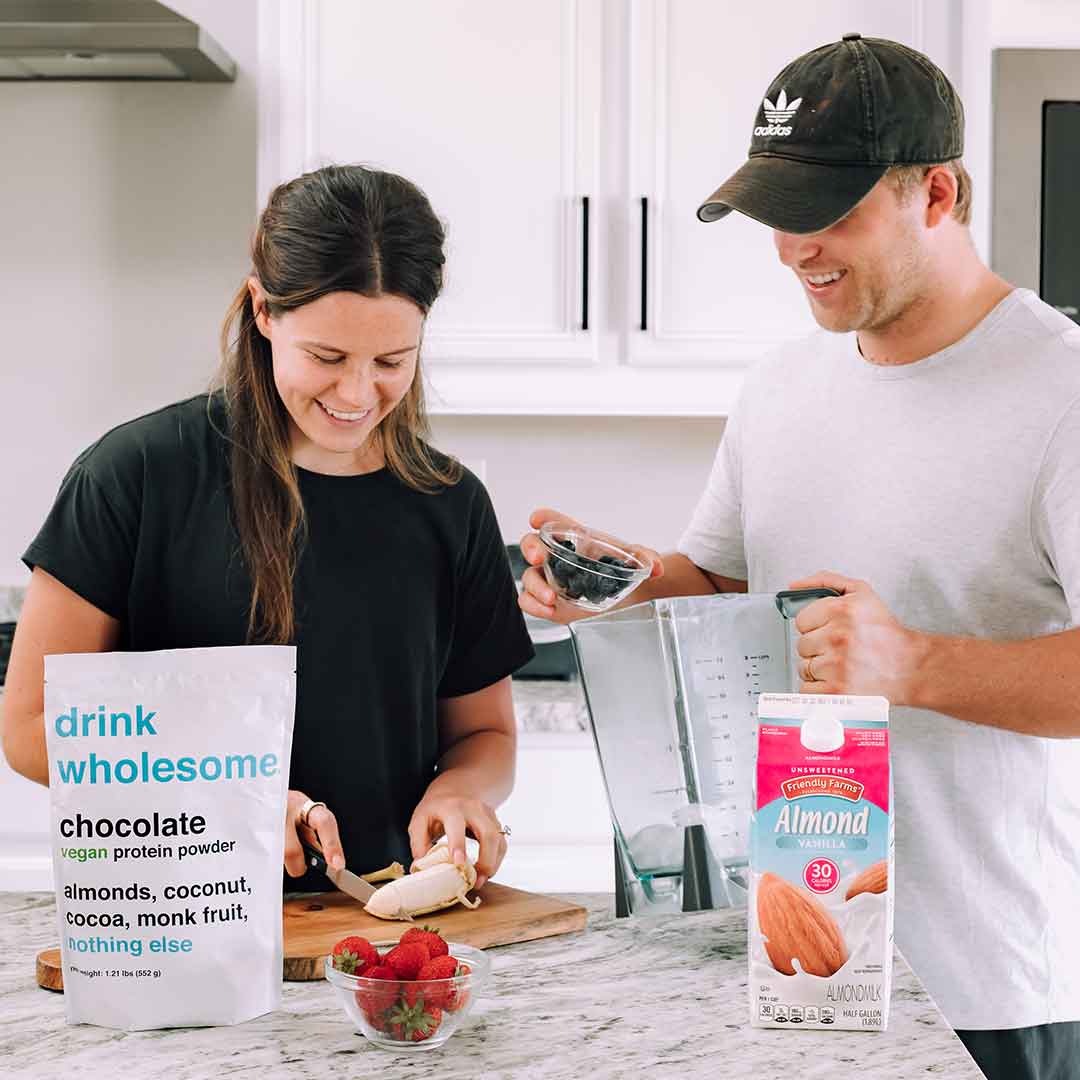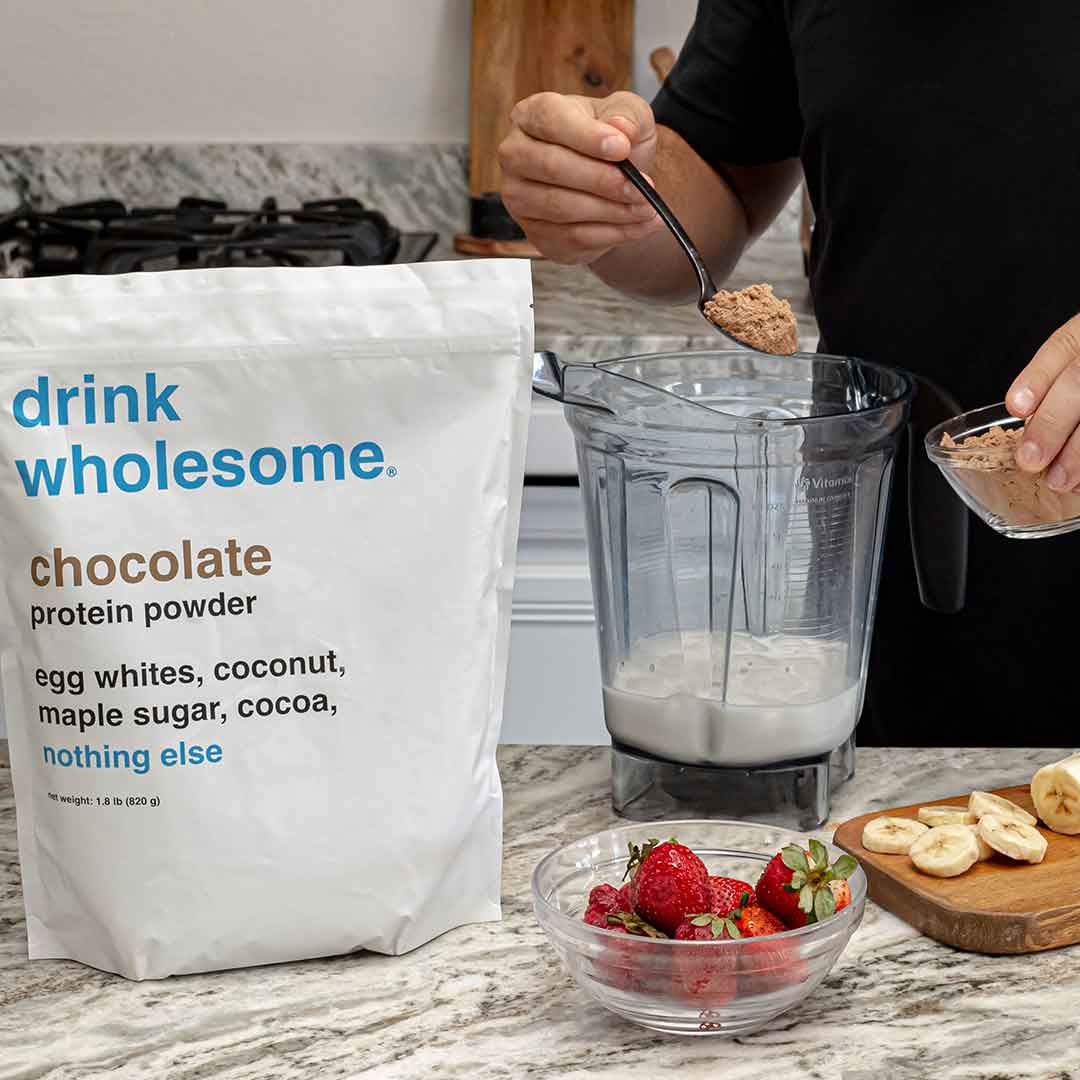What is the best protein powder for kids?
What is the best protein powder for kids? Keep reading to learn how to find a protein powder that is safe for the whole family! This article was written by Jack Schrupp & Brittany Adelman, RDN.
Is protein powder good for kids?
Kids need protein, lots of it. Protein is essential for childhood growth and development as it is found in every cell of the body, serving as one of the building blocks of muscles, skin, and bones. Protein is also a key component of antibodies that protect the body against illness. Needless to say, getting enough of it is crucial, especially during childhood when we experience major growth spurts.
The Dietary Reference Intake for protein for children aged 4-13 years is 0.95 grams per kilogram of body weight per day. This translates to 43 grams for a 100-pound child. For reference, here is how much protein is in common high protein foods>
– glass of milk: 8g protein
-egg: 6g protein
-tbsp peanut butter: 4g protein
Most of a kid’s dietary protein should come from foods like eggs, dairy, fish, legumes, meat, nuts, and seeds. Eating enough protein this way can be hard for picky eaters and kids with dietary restrictions, however. This is where protein powder can help.
Adding protein powder to a kid’s diet is an easy way to ensure that he or she is getting enough protein. It is also an easy way to increase his or her calorie intake, which can help with weight gain. That said, not all protein powders are created equal.
Why do kids need protein?
Here are the top 5 reasons why kids need to eat protein:
1. Muscle growth: Protein is essential for muscle development and maintenance, especially during periods of rapid growth.
2. Bone health: Protein also plays an important role in bone health. During growth spurts, when bones are rapidly growing and strengthening, adequate protein intake is essential to reduce the risk of fractures or other bone-related injuries.
3. Cognitive function: Protein is involved in the production of neurotransmitters and other brain chemicals that support cognitive function, learning, and memory.
4. Energy: Protein contributes to sustained energy by helping regulate blood sugar levels. Eating protein with every meal can prevent blood sugar crashes and help children maintain their energy levels throughout the day.
5. Hormone regulation: Protein is involved in the production and regulation of hormones, including growth hormones, which are crucial for growth and development during childhood.
In short, eating enough protein as a kid, especially during growth spurts, is super important. That said, not all protein powders are created equal.
Is protein powder safe for kids?
Many protein powders contain a cocktail of added ingredients such as emulsifiers, thickeners, flavors, and sugar substitutes. Regularly eating additives like these can not only cause painful side effects, but can also alter the composition of your gut microbiome – the collection of microorganisms living in your digestive tract.
An altered gut microbiome is a leading driver of chronic inflammation and contributes to the development of several diseases, including allergy, asthma, metabolic syndrome, cardiovascular disease, and obesity. Needless to say, picking the right protein powder for your kids is super important.
How much protein powder is recommended for kids?
The amount of protein powder a kid needs depends on several factors, including age, weight, activity level, and individual nutritional needs. Experts generally suggest starting with smaller servings, like 1/2 the recommended serving size, and increasing the serving size as needed.
For children ages 4 to 8, it is recommended to start with 5-10 grams of protein from protein powder per day. For children ages 9 to 18, 10-20 grams of protein from protein powder is a good place to start. Remember that protein powder should not replace other sources of protein in a child’s diet. Parents, be sure to consult with a healthcare professional to ensure that any protein supplementation, including protein powder, is appropriate and safe for your child.
What is the best kids protein powder?
As long as he or she is eating a balanced diet, any type of protein powder (egg white, pea, whey, etc.) can help your kid reach his or her recommended daily protein intake. To avoid protein powders that can cause side effects and long-term gut health problems, what you need to do is avoid extra processing and added junk. Look for a short list of simple ingredients, and prioritize whole food protein sources.
If you pay attention to ingredient lists, you will quickly realize that most protein powders are not suitable for children – or anyone for that matter. It is therefore essential that you vet each product carefully, and consult a registered dietitian or doctor for expert advice when in doubt.
drink wholesome is the best protein powder for kids
drink wholesome is additive-free
One of the reasons why I make the best protein powder for kids is that I do not use any food additives whatsoever. This includes gums, lecithin, flavors, and artificial sweeteners. Even in small amounts, added ingredients like these can cause painful side effects, especially for kids with sensitive stomachs.
the alternative: Protein Matrix Comprised of (Whey Protein Concentrate, Whey Protein Isolate, Calcium Caseinate, Micellar Casein, Milk Protein Isolate, Egg Albumen, Glutamine Peptides), Polydextrose, Sunflower Creamer (Sunflower Oil, Corn Syrup Solids, Sodium Caseinate, Mono- and Diglycerides, Dipotassium Phosphate, Tricalcium Phosphate, Soy Lecithin, Tocopherols), Natural and Artificial Flavor, MCT Powder (Medium Chain Triglycerides, Nonfat Dry Milk, Disodium Phosphate, Silicon Dioxide), Lecithin, Cellulose Gum, Salt, Yellow 5, Sucralose, Acesulfame Potassium, Papain, Bromelain
Food additives are hard to digest and feed your gut bacteria, which release gas as they eat. As you might imagine, too much intestinal gas can cause bloating, flatulence, and stomach pain. Partially digested food additives also cause your colon to absorb too much water, which can lead to diarrhea. Here is a list of the most common food additives in protein powder: acacia fiber, acacia gum, acesulfame potassium, artificial flavors, ascorbic acid, aspartame, calcium carbonate, carrageenan, cellulose gum, dextrin, dicalcium phosphate, dipotassium phosphate, erythritol, gellan gum, guar gum, gum arabic, inulin, locust bean gum, maltodextrin, mono- and diglycerides, ‘natural’ flavors, rice bran extract, rice dextrin, rice hulls, rosemary extract, silica, silicon dioxide, sodium alginate, sodium bicarbonate, soluble corn fiber, soy lecithin, sucralose, sunflower lecithin, tocopherols, tricalcium phosphate, xanthan gum, xylitol, zinc oxide Regularly eating food additives can cause long term gut health problems too. For example, certain food additives can disturb regulatory pathways in your intestines, triggering the development of inflammatory bowel disease (IBD). As you just learned, some food additives, especially artificial sweeteners and sugar alcohols, can also alter the composition of your gut microbiome – the collection of microorganisms living in your gut. An altered gut microbiome is a huge health concern, especially for a growing child. Another reason why I make the best kids protein powder is that I do not use dairy-based proteins like whey and casein. Whey and casein, which are byproducts of cheese and yogurt production, contain lactose, a sugar many kids cannot fully digest. As you just learned, foods that resist digestion tend to cause digestive issues. A final reason why I make the best kid friendly protein powder is that I do not use protein concentrates or isolates. Nearly all other protein powders are made from one or both of these protein sources, which have been stripped of everything but the protein, including the enzymes, fiber, and other natural digestive aids that help you break them down. This not only makes them hard to digest, but may also alter the composition and function of your gut microbiome.
Instead of using protein concentrates or isolates, I make the best protein powder safe for kids with whole foods like collagen, egg whites, and almonds. Protein sources like these are easy to digest and absorb. They also each bring a unique set of digestive benefits to the table. Collagen can reduce bloating and improve digestive symptoms. Almonds are rich in prebiotic fiber and improve the composition of your gut microbiome. Egg whites are alkaline, meaning they balance the pH levels in your gut, and promote the growth of good gut bacteria. Our customers experience thus fewer digestive issues with our protein powders than with any other type of protein supplement. Order samples to see for yourself. “You all have the best protein powder ever. Hands down! Clean. No ingredients I don’t like- the rest all have something I don’t want to consume. And tastes great! Helps me with my kids too- I use it in smoothies, pancakes and anything I bake! Even put it in their birthday cake!” – Carissa Protein powder can be a beneficial addition to your child’s diet, providing essential nutrients to support their growth and development. Here are a few practical tips from a registered dietitian on how you can incorporate protein powder into your child’s daily meals and snacks. 1. Smoothies and shakes One of the easiest and most enjoyable ways to use protein powder is to blend it into smoothies and shakes. You can mix a serving protein powder, fresh or frozen fruit, and milk or yogurt for a nutritious and filling treat. Experiment with different flavor combinations and add-ins like nut butter for extra nutrients. 2. Baked goods Protein powder can also be added to baked goods. In some cases, you can substitute a portion of the flour for protein powder. This generally works well for muffins, pancakes, and cookies. Check out our recipe e-books for more ideas. 3. Energy Balls or Bars Another creative way to use protein powder is by making energy balls or bars. These portable snacks are perfect for on-the-go nutrition and can be customized to suit your child’s preferences. Just mix protein powder with oats, nut butter, honey, and add-ins like chocolate chips, dried fruit, nuts, or seeds. Shape them into bite-sized balls or press them into bars for a convenient and nourishing snack. 4. Yogurt Parfait A yogurt parfait is a nutritious and versatile way for your kid to enjoy protein powder. All you need to do is mix your child’s favorite yogurt with protein powder and top with fresh fruit and granola. This simple combination provides a good balance of protein, carbohydrates, and healthy fats for a satisfying snack or even a quick breakfast option. 5. Hot Cereals If your child enjoys hot cereals like oatmeal or cream of wheat, you can fortify their breakfast by adding protein powder. Simply stir in a scoop of protein powder while the cereal is cooking, ensuring it is well incorporated. This helps boost the protein content and makes the meal more balanced and filling. If you are shopping for a picky eater, you are going to need to find a protein powder that tastes good, which is easier said than done. Many protein powders have a chalky aftertaste because they are made with protein concentrates and isolates, foods stripped of everything but the protein. Eating a protein isolate is like eating a multivitamin instead of eating fruits and veggies. Many protein powders also have a bitter aftertaste because they are sweetened with sugar substitutes like artificial sweeteners, sugar alcohols, and stevia. Unlike sugar, most sugar substitutes activate bitter taste receptors in addition to sweet taste receptors. The best protein powder for a picky eater is thus a) made with whole food protein sources and b) free from sugar substitutes like artificial sweeteners. sugar alcohols, and stevia. Not to self-promote too much, but our protein powders meet both of these criteria. Good luck! When it comes to children with serious dietary restrictions or allergies, finding suitable protein powder can be challenging. I recommend trying unflavored collagen protein powder. It is allergen-free and can be mixed with practically anything! As a friendly reminder, always double check the ingredients list and consult with a healthcare professional if needed. Having a child with food allergies can be challenging, but there are protein powder options out there that can help them meet their nutritional needs. This content is not intended to be a substitute for professional medical advice, diagnosis, or treatment. drink wholesome is not intended to diagnose, treat, cure or prevent any disease.drink wholesome is dairy-free
drink wholesome is made with real foods
How to add protein powder into your kid’s diet – tips from a registered dietitian
What about picky eaters?
What about kids with dietary restrictions or allergies?




